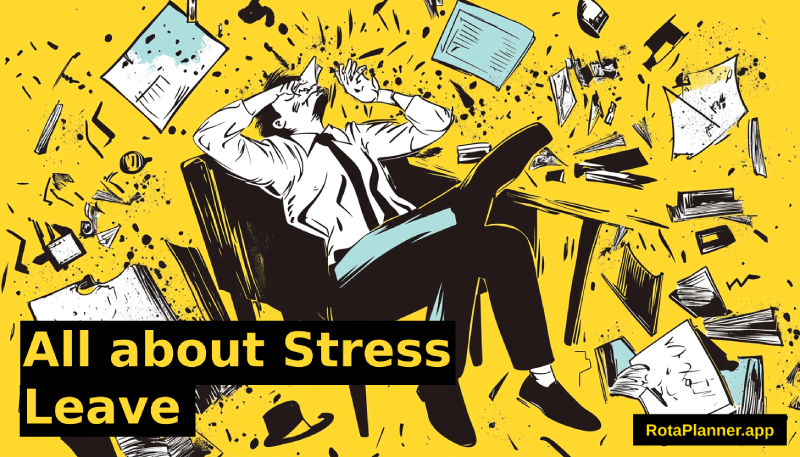
What is stress leave?
Stress leave is time off work that someone takes to recover from stress-related conditions. This can help them get better and come back to work feeling stronger.
Stress can come from many things such as heavy workload, personal issues, or difficult work environment. Taking stress leave allows employees to focus on their health without worrying about their job.
Why do people need stress leave?
People need stress leave when their stress level is high, and it starts to affect their physical and mental health. **Working under excessive stress** can lead to serious health issues like anxiety and depression.
What is stress leave?
Stress leave is a period taken off work to recover from stress. It helps prevent burnout and further health problems.
This kind of leave is often supported by a doctor’s note explaining the need for time off.
When to take stress leave
Employees should consider taking stress leave if:
- They feel overwhelmed and exhausted regularly
- They are having trouble concentrating or making decisions
- They have insomnia or physical symptoms like headaches or stomach problems
If these signs continue, it’s vital to speak to a doctor.
How to recognise the signs of stress
Recognising the signs of stress early can help. Look out for changes in your mood, behaviour, and physical health.
It is important to act quickly to prevent the situation from worsening.
How to take stress leave
If you believe you need stress leave, follow these steps:
- Speak to your GP and get a medical certificate
- Talk to your HR department or manager
- Provide the necessary documents and details
- Take your leave and focus on recovery
It’s essential to keep communication open with your employer during this time.
Preparing for stress leave
Ensure you have all your paperwork ready and a plan for your recovery.
It might help to list activities that can reduce stress such as exercise, hobbies, or talking to a therapist.
Returning to work after stress leave
When returning to work, make sure you feel ready. Here are a few tips:
- Gradually return if possible, starting with part-time
- Have a meeting with your manager to discuss any needed adjustments
- Continue to use stress management techniques
- Seek ongoing support from a professional if needed
Returning to work slowly can help ease the transition.
Managing stress at work
To avoid needing stress leave again, consider these steps:
- Take regular breaks and don’t work through lunch
- Set clear boundaries between work and personal life
- Talk to your manager about workload if it becomes too much
- Practice relaxation techniques like deep breathing or meditation
Small changes can make a big difference in managing stress.
